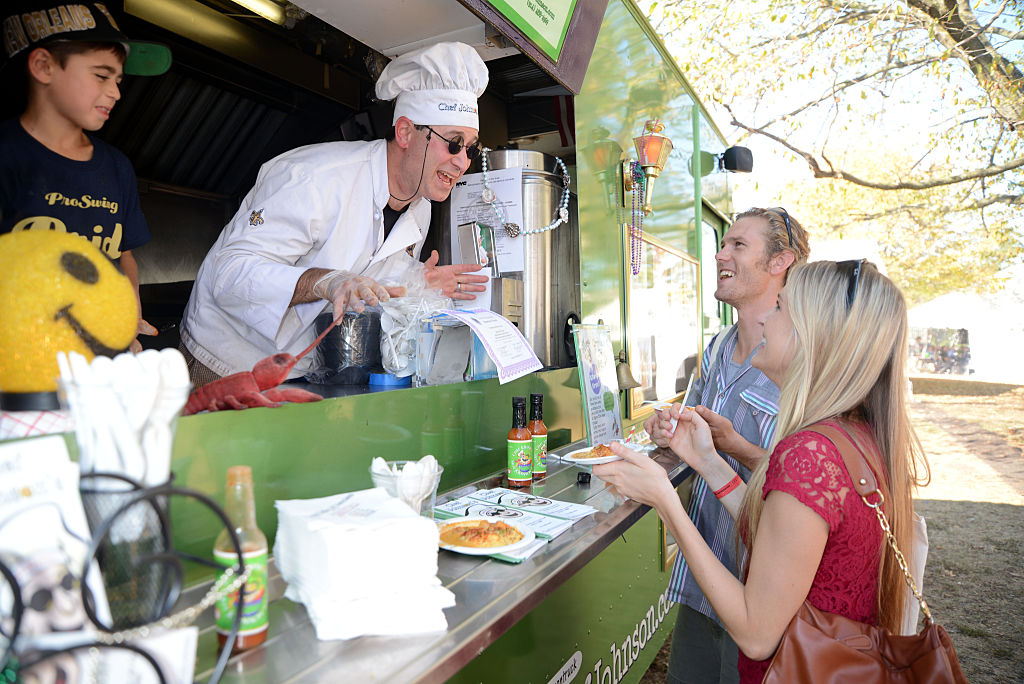Culture & Religion
All Stories
The hormone coil, the ring, injections, and the patch were all found to be much worse.
What would happen if gene editing fell into the wrong hands?
Study reveals that most of us want more rest and would rather rest alone.
Spontaneous, deep talk on surprise topics. On this week’s episode of Think Again – a Big Think podcast, celebrity chef Alton Brown and host Jason Gots talk about fire, their mutual childhood lust for the Betty Crocker Easy-Bake Oven and how everything worth doing might get you killed.
Memes have the potential to make people laugh, but when they’re used for evil?
A Yale study finds implicit racial bias in a study of 132 white and black preschool educators, but in different ways.
For nearly 50 years, a charred lump of Dead Sea Scrolls has been sitting in a lab, too brittle to unroll. Now it’s been virtually unwrapped using 3D technology, and the contents are intriguingly – and significantly – petty.
Manu Prakash is one of the MacArthur Foundation’s 2016 Fellows, and here’s why.
Have you ever refreshed your social media page, tallying each new like or lamenting that there are none? A new study reveals what that says about your self-esteem and your sense of purpose.
A spiritual journey through the world beyond the grave, a hell, a purgatory, and a paradise is considered a masterwork of world literature.
It takes a magician —or two — to know when someone’s performing clever sleight-of-hand.
I trail run early in the morning, in part, to avoid people. Los Angeles might be vast, but spacious it is not. By 6:30 am I’m running up one side […]
Does your doctor have the right to choose not to help you if they oppose the procedure you request? Several schools of thought offer differing answers.
Edward Snowden and his allies are lobbying President Obama to pardon him.
A recent study in Drug and Alcohol Dependence shows the efficacy of mindfulness meditation in overcoming addiction through emotional regulation.
1 in 10 people in Acciaroli, Italy are over 100 years old. Their secret to longevity? Their biology, diet, and the high-levels of friskiness among the elderly.
In a world where women are having children later in life, we are faced with new questions in reproductive ethics. Here we ask, “Do children have a right to be loved by grandparents?”
A new study shows how interval exercise resulted in two hundred fewer calories consumed in just thirty-five minutes.
Rabble-rousing politicians may be uniquely benefitting from the Information Age.
One Alabama library is demanding jail time for late books. How is this happening in a nation that’s reading less and less?
Spontaneous, deep talk on surprise topics. On this week’s episode of Think Again – a Big Think podcast, Nobel Laureate neuroscientist Eric Kandel and host Jason Gots discuss abstract art, memory, identity, and the nature of evil.
National Parks have long been a staple of American wildlife conversation. Why not have some underwater?
Psychedelics are experiencing a resurgence. What can we learn from bad trips?
Mother Teresa will be canonized this Sunday, September 4th. What does it take to become a saint, and is the Vatican mistaken to not address Mother Teresa’s flaws?
From obesity and heart attacks to mental disorders and compromised immune systems, a lack of sleep is deadly.
Allow me to paste a new label onto our country’s most-labelled demographic the Millennials: the food truck generation. 47 percent of Millennials have eaten from a food truck, making them the most likely patrons of those mobile establishments that their parents were more apt to refer to as “roach coaches” or “gut trucks.” Food trucks have been around in some form or another for most of the 20th century, but they were more culturally recognizable as fixtures of isolated workplaces like manufacturing plants and construction sites.
Today, food trucks are estimated to be a $2.7 billion industry and have been reappropriated into a younger, more affluent, more urban cultural ethos. The mass migration of Millennials into cities mirrors to some extent the proliferation of the food trucks on those same city street corners. With their DIY sensibility and appealing sort of grubbiness, food trucks cater to younger folks who have come to search for “authenticity” in their brands – or rather products that give the appearance of being “brandless”. So is it that the proclivities of these young hip urbanized eaters have spurred the rise of the gourmet-food-truck phenomenon? Or is there a larger force that has shaped both the landscape of the restaurant industry and Millennial tastes at once?
A group of expert geologists declared that a new epoch influenced by human impact has begun.
Studies suggest that giving elementary students homework does more harm than good.
In 1835 Alexis De Tocqueville toured the United States and recorded many elements of living in a democratic society. We can use his observations to better understand the society around us.
According to letter sent to income college freshmen, the University of Chicago will not use trigger warnings or act as a safe intellectual space for students.





























